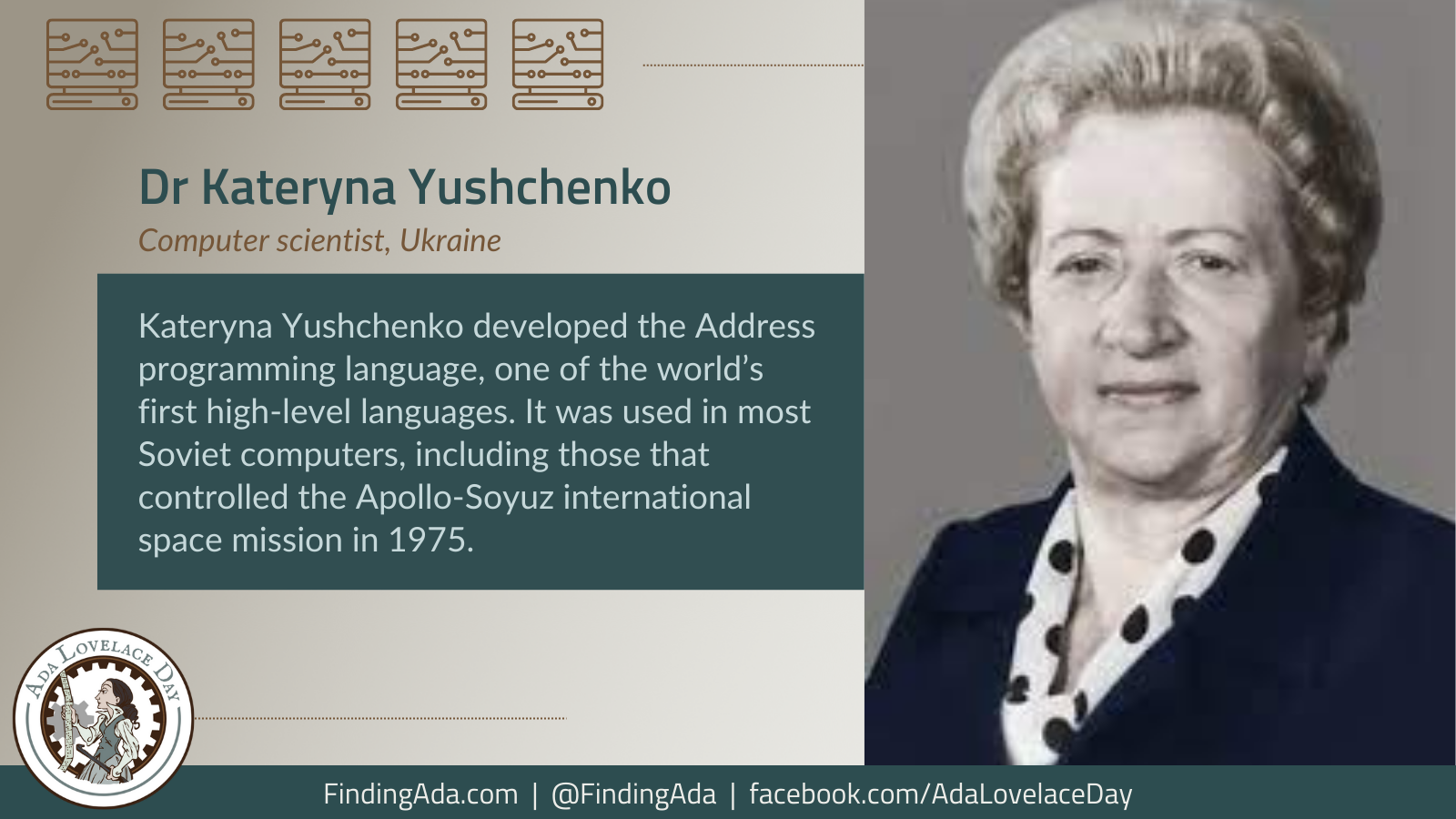
Dr Kateryna Yushchenko
Kateryna Yushchenko, Катерина Ющенко, was a Ukrainian computer scientist who developed the Address programming language, one of the world’s first high-level languages.
Yushchenko was born in 1919, in Chyhyryn in central Ukraine. In 1937, her father was arrested as a Ukrainian nationalist (he later died in a gulag) and when her mother tried to prove his innocence she was arrested and imprisoned for ten years. Yushchenko had just started studying at Kyiv University, but was expelled as a “daughter of enemies of the people”. The only institution that would accept her on a full state scholarship was Samarkand University in Uzbekistan.
Moving back to Ukraine after WW2, she was awarded her PhD in 1950 by the Kyiv Institute of Mathematics of the Ukrainian Academy of Sciences, the first woman in the USSR to get a PhD in physical and mathematical sciences in programming. She was a senior researcher for seven years, at which point she was appointed director of the Institute of Computer Science.
Two years later, the Institute bought the first MESM, or Small Electronic Calculating Machine, which was the first universally programmable computer in continental Europe, and Yushchenko was appointed head of the MESM laboratory. She realised that complex tasks could not be completed by the MESM, which had little memory and was very slow, without a high-level programming language, but that required a way for humans to program in that language.
To solve this problem, Yushchenko developed the Address programming language, which referred to memory cell addresses rather than numbers, several years before Fortran, COBOL or ALGOL. The Address programming language was used in most Soviet computers, including those that controlled the Apollo-Soyuz international space mission in 1975.
Yushchenko also worked on probability theory, algorithmic languages and programming languages, as well as developing automated data processing systems. She wrote a series of programming textbooks in the 1970s, including Elements of Programming, which was used across the USSR and the Eastern Bloc countries.
Further Reading
- Kateryna Yushchenko (scientist), Wikipedia
- Ukrainian Women and Girls In Science, Ukraine Now
- Kateryna Yushchenko: The Programmer Who Changed the World, Marta Shvets, STEM Is FEM
- Kateryna L. Yushchenko — Inventor of Pointers, Alvaro Videla, A Computer of One’s Own: Medium, 8 December 2018
- Kateryna Yushchenko, Emma Staves, Computing at School, 7 March 2022
- Early Ukrainian Women Scientists: Part 2 – From Mushrooms to Physics, a Programming Language, Plants, & Bees, Hilda Bastian, Absolutely Maybe: PLOS, 28 April 2022